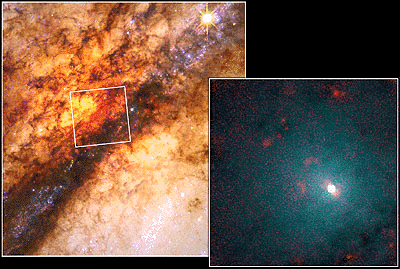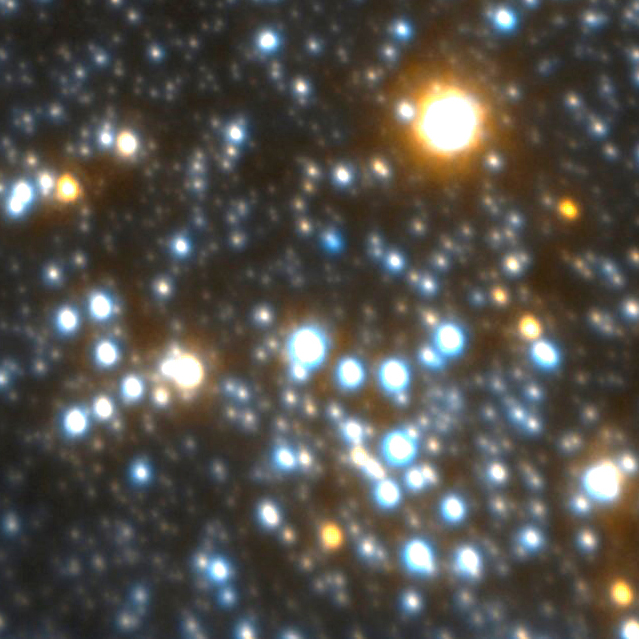Galaxies seem to grow around supermassive black holes, as we will study in more
detail when we discuss active galactic nuclei. There is a supermassive black hole (about 3
million times the mass of the sun) in the center of the Milky Way, and we can study it and
its surroundings in far finer detail than we can for the nucleus of any other galaxy. For
example, the picture below shows the nearest external galaxy with an "active"
central black hole, Centaurus A, and compares an unresolved spot in its nucleus with what
we can see in a spot of the same physical size in the Galactic Center.
 |
HST images of the center of Centaurus A (from http://oposite.stsci.edu/pubinfo/pr/1998/14/b.html).
A color optical picture is to the left, while a near infrared image is to the
right. The infrared light penetrates the dust and shows the nucleus glowing in light from
the supermassive black hole. The small flashing square is an unresolved region about half
a parsec in size. |


